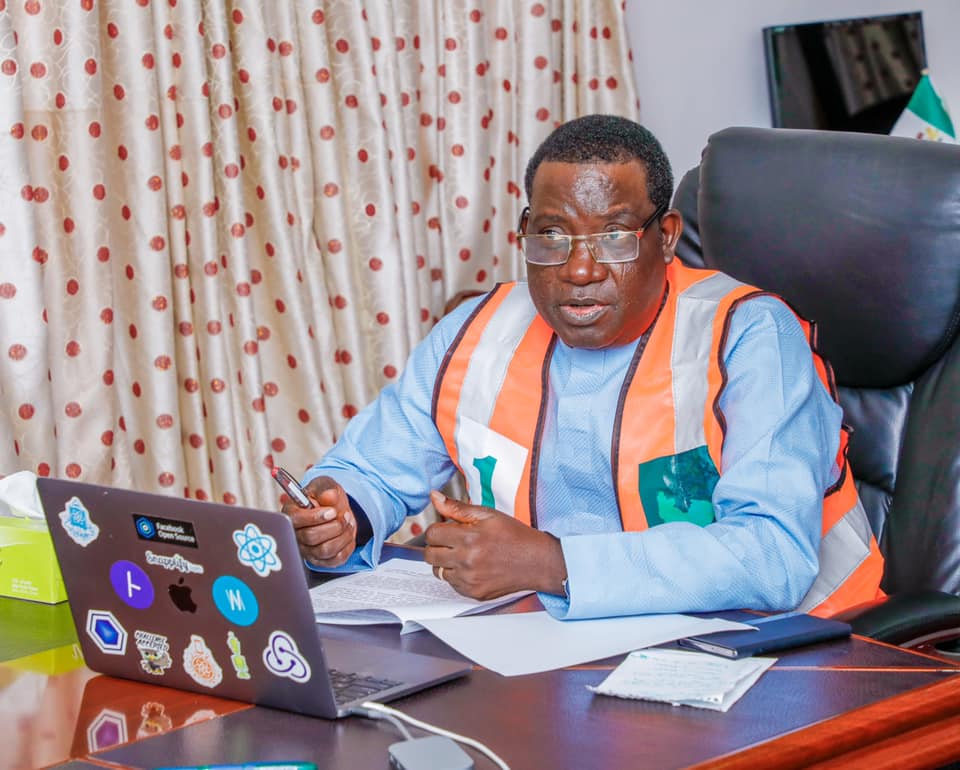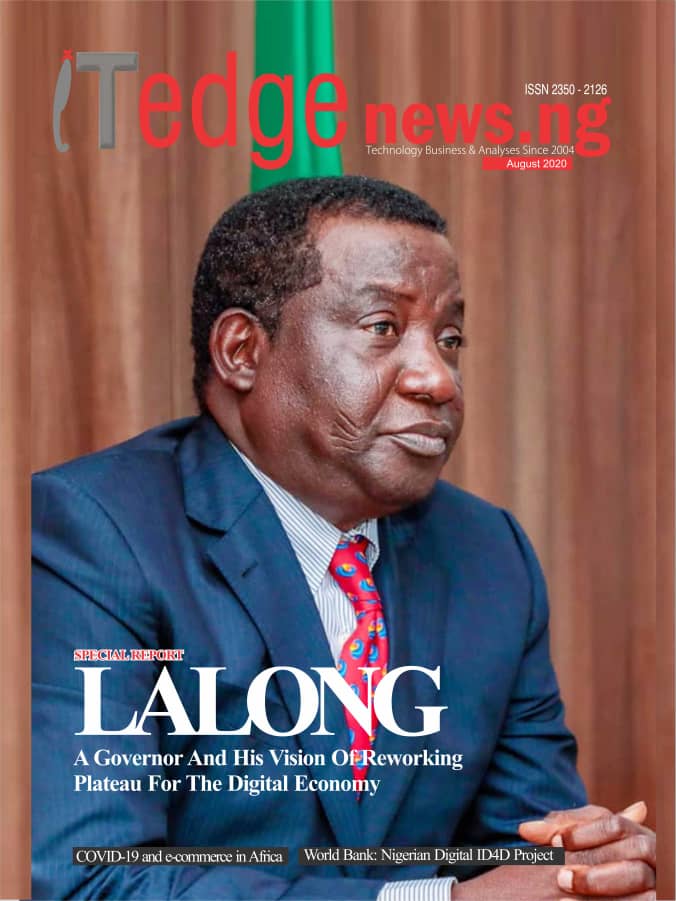
Between hoes and tech hubs
One of the toughest decisions to take in any developing economy is investing willpower, policy direction with funding to ICT.
The debate has always been what should take priority between providing hoes for farming and setting up ICT hubs? Both are important. But because ICT appears to be somewhat futuristic to politicians, it usually loses out to hoes.
Decision makers in Plateau state, central Nigeria, are also susceptible to this dilemma.
Through series of policy thrusts, an Act of Parliament and a mix of political struggles with administrative commitments, Plateau state has managed to statutorily create an ICT regulatory and development agency: the Plateau Information and Communication Technology Development Agency (PICTDA). It is the first statutorily created ICT agency by any state in Nigeria’s federation of 36 states.
The responsibility to promote ICT and make it a focal point in development planning has largely been championed by Rt. Hon. Simon Bako Lalong, lawyer and politician; the present Executive Governor of Plateau State.
Since assuming office, Lalong has had a progressive association with ICT in a way that sets his administration apart from previous ones and has helped to headline Plateau state as a go-to place for tech innovations.
ICT defines the 21st century, a century of knowledge – thus, its depiction as the century of the ‘knowledge economy.’ A most common used term now is the Digital Economy.
All across the developing world, particularly Africa, there is a slow but growing acceptance that technology is the wave of the future. Internet diffusion, despite difficult access, has proven to be an eye opener for millions of young people. Their increasing interaction with the internet and diverse online activities provide the required pressure to make more governments commit to ICT.
In Plateau state, this trend is noticeable. There are more than five social and technology hubs providing the fillips to help re-think development planning by state actors in the context of youth, technology, and the digital economy.
Plateau state has a troubled recent history of violence dating almost two decades. Since 2001, the state has had to contend with series of ethnic and religious upheavals – all of which have impacted negatively on peace and development in the state. While it has managed to curtail these crises in the last seven years or so, it is still haunted by the gnome of that horrible past.
“Today, we are making a lot of effort towards improving digital access in terms of education, job creation and entrepreneurship. Our government recognizes that ICT is now an economy of its own often referred to as the “digital economy”.
Lalong: Why we are supporting ICT
For Lalong, maintaining peace has been as critical as setting up physical infrastructures. Equally important is investing in tech-empowerment of young people and gearing the state to be active in the national agenda for digital economy.
At a recent virtual function on ICT deployment this year, Governor Lalong offers insight on why his administration is committed to ICT. Lalong said he sees good governance and economic development in how effectively ICT is deployed.
His words: “Information and Communication Technology [ICT] has become a major priority of my administration since assuming office because of the need for the automation of our processes to be able to serve our citizens better and to promote efficiency and transparency in governance.
“Some of the areas where we have continued to deploy ICT include our procurement processes, revenue collection, budgeting, security, financial management, land administration, communication and public engagement. We are automating our services to enhance efficiency and cost effectiveness.
“Today, we are making a lot of effort towards improving digital access in terms of education, job creation and entrepreneurship. Our government recognizes that ICT is now an economy of its own often referred to as the “digital economy”.
He remarked that his core objective is to leverage technology to improve quality of government’s services and obligations to the citizens.
“Our goal is that before we leave office, we would like to have most, if not all our governance processes driven by information and communication technologies,” the governor said. His government is often touted as the “Rescue Administration.”

Making the balance – Peace matters and ICT too
Understandably, Lalong’s policy thrust sits on a tripod. They include:
- Peace, security and good governance
- Physical infrastructural development; and
- Sustainable economic rebirth
In about five years of ruling the state, he has designed his objectives round this tripod with considerable results notably with peace, security and good governance; and sustainable economic rebirth – under which he has committed to ICT development more than any governor before him in the state.
The vehicle driving Lalong’s ICT goals on the Plateau is PICTDA, created by an Act of Parliament about two years ago to oversee technology policies implementation and development in the state of about five million people.
According to the Director General of PICTDA, Daser David, in a virtual interview with IT Edge News, Governor Lalong has provided rare leadership in helping to drive the frameworks for ICT human capacity building and policy awareness as well as adoption of technology across key sectors that drive the state.
“There is a gradual institutional acceptance of ICT in all public ministries, departments and agencies (MDAs) as a way of improving governance, quality of lives and delivery of services to citizens with the governor as the prime mover of this change,” said David.
Some of the hallmarks of Lalong’s achievement in the tech-space include technology skill building targeting young people through the Code Plateau initiative; and the Plateau Information and Communication Technology (ICT) Policy and Strategic Plan designed to drive the state’s vision at improving quality of life across sectors using ICT.
The Code Plateau initiative, launched last year, is part of a larger framework for digital inclusion and skill-building within the Silicon Plateau agenda by Lalong to rework the state’s economy and leverage global IT opportunities. More than 250 applicants passed through the programme in 2019 with over 50 of them acquiring skills to become software developers.
The 2020 edition of the programme has already started tagged ‘Code Plateau 2.0’. It aims to add more skilled developers to the growing list of critical skill sets that could help drive Africa’s largest economy of over 200 million people as Nigeria plugs into the digital economy.
Code Plateau: Lalong’s game changer for youth empowerment
The “Code Plateau” is the flagship of the ‘Silicon Plateau Project’ according to David. It forms the kernel of Governor Lalong’s vision for youth empowerment, employability and an overall new economy for Plateau State. The Code Plateau is focusing on training the youth of Plateau state in ICT to produce an enormous number of talents which would give birth to the desired technology driven economy.
The programme is designed to “create talents through a full-time immersive boot camp that is designed for young people who want to start their career in IT and kick start their portfolio of real-life projects that utilize modern tools. The ultimate goal of Code Plateau is to train, nurture and position these fellows in job internship across the diverse technology companies in Nigeria,” David added.
According to the PICTDA’s boss, Code Plateau forms part of the framework for development of ICT as an industry which is vital to the economic growth of Plateau state in line with the mandate of PICTDA to drive a technology value in the state.
His words: “Under the guidance and support of Governor Simon Lalong in the first year of his second tenure, one of his achievements would be support of his administration for the Code Plateau initiative through which PICTDA was aided at building tech skills in young people to be part of not just Nigeria but the global digital economy. The agency recorded a success rate in turn-up and certified participants at the end of the training.”
Eyes on the Plateau: International cooperation coming
Through the PICTDA, Plateau state is already in talks with the World Bank to see how the global financial institution could support the state-funded capacity building scheme, among others.
Also, Plateau state is seeking the assistance of the UK government for the establishment of the Joseph Gomwalk Innovation Hub. The hub is part of a larger strategy to build digital skills in young people and encourage technology investment into the state of over four million people as inked in the blueprint for Silicon Plateau. The Silicon Plateau encapsulates the roadmap for Plateau ICT vision and the focus on building a new digital economy fostered on young people. Silicon Plateau also envisages to create Plateau state version of Silicon Valley in California state, USA; Internet City in Dubai, UAE; and Bangalore in Karnataka State, India – all homes to technology innovations that have reworked the world.
Leveraging ICT to Rework Plateau – The ‘Do’ List
- Among Lalong’s achievements is the implementation of e-Government policies, which set a template to drive speed, efficiency, and save costs in the delivery of government services to the citizens.
- While the COVID-19 pandemic bites, the state took the front row in technology implementation and deployment. First with the utilization of CCTV cameras to monitor and police the borders through tech aided surveillances.
- As the COVID-19 pandemic lockdown persisted, Plateau state became the first state in Nigeria to have used an online platform to issue movement permit during the COVID-19 pandemic lockdown
- Today, the state is one of the few states that has signed for zero charges on right of way (RoW) to enable ICT companies rollout services that will benefit citizens without hindrances.
- Plateau state leads other states in terms of compliance with the Nigeria Data Protection Regulation (NDPR), 2019 – a national data protection guideline for all public and private entities engaging citizens’ data in Nigeria.
- Like the NITDA [National Information Technology Development Agency], Plateau state government has issued guidelines for clearance of IT projects by all ministries, departments and agencies (MDAs) in line with Governor Simon Lalong’s drive for transparency and more prudent spending of public funds.
- Under the IT Procurement Guidelines, MDAs are required to obtain clearance from the Plateau State Information and Communication Development Agency (PICTDA) for their IT projects. At federal level, MDAs must get clearance from the NITDA.
- Plateau state made history to unveil Nigerian first home-made ventilator. Nigeria’s tech hardware developer, Jerry Mallo, unveiled the first set of prototype ventilators in Jos, Plateau State in the fight against the coronavirus. His team was commissioned by the Plateau State government to develop the ventilators.
- The Digital Skill Learning in Rural Plateau under the PICTDA’s Rural Technology Outreach. The Digital Education initiative is designed to create awareness and offer basic instructions on digital skills to mass of the people at the grassroots. The programme has covered schools teachers in several rural communities under the ‘Train the Trainer’ scheme in which primary and secondary school teachers benefitted from the first point of digital instructions; and then are made able to pass these on to their pupils and other strategic beneficiaries in the chain of learning.
- The Code for Plateau initiative. The PICTDA has already firmed up plans to launch its global wide participatory innovation platform for developers within and outside Nigeria: The Code for Plateau. It is designed to run as an open source project for developers from Plateau state, Nigeria and across the world to provide solutions within a tech community framework able to uniquely address the identified needs of Plateau state which is home to nearly five million people.
“ICT has become a major priority of my administration since assuming office because of the need for the automation of our processes to be able to serve our citizens better and to promote efficiency and transparency in governance.”
California, Rwanda, Plateau: Technology can be the economy
For many observers in the technology sector, the path to Silicon Valley in California may be far. But the road to Kigali, Rwanda is very near. Plateau could equally climb up fast on the ladder like Rwanda by building on people –focusing on skill development, fostering global and national partnerships and taking enlightenment on ICT and diffusion to the grassroots.
Lalong’s Plateau has a vision to recreate California’s Silicon Valley in that central Nigerian state. It’s a tall dream. With a population of 39 million as of January 2020, California is often touted as the world’s fourth largest economy. Its economy is largely driven by ICT investments.
Plateau is the twelfth-largest state in Nigeria with a population of nearly five million. It has a struggling economy even though it was once famous for its mining industry. The state is known for its fine weather, elevated hills and beautiful rocks. Most of the state, particularly areas around its capital city of Jos, are regarded as the coldest in the country with temperatures as low as 6.7 degree Celsius. Despite its recent troubled history, Plateau state is celebrated as “’the Home of Peace and Tourism.’
But Plateau state can draw inspiration from Rwanda, regarded as one of the few countries in Africa that efficiently use ICT across sectors. The country is often praised for how it used ICT in its health sector to reach the 2015 Millennium Development Goal of improved maternal health.
A report released by the United Nations Conference on Trade and Development dated October 3rd, 2006, ranked Rwanda top of the league in East Africa in terms of ICT.
Last year at the World Economic Forum (WEF), Rwanda demonstrated that it was already leveraging emerging technologies to drive social and economic development.
The country’s goal is to be Africa’s nest for ICT and Innovation; and to become a knowledge-based economy in the next few years. It is building its ambitious plans around its population of about 13 million people; half of which are young people below 25 years.
Rwanda holds so many prospects that Plateau state could build on. The good news is that Governor Lalong has the willpower and the time to prove that prospect true on the Plateau. Whether in developing or advanced economies, science, technology and innovation (STI) have become key factors contributing to economic growth.





























